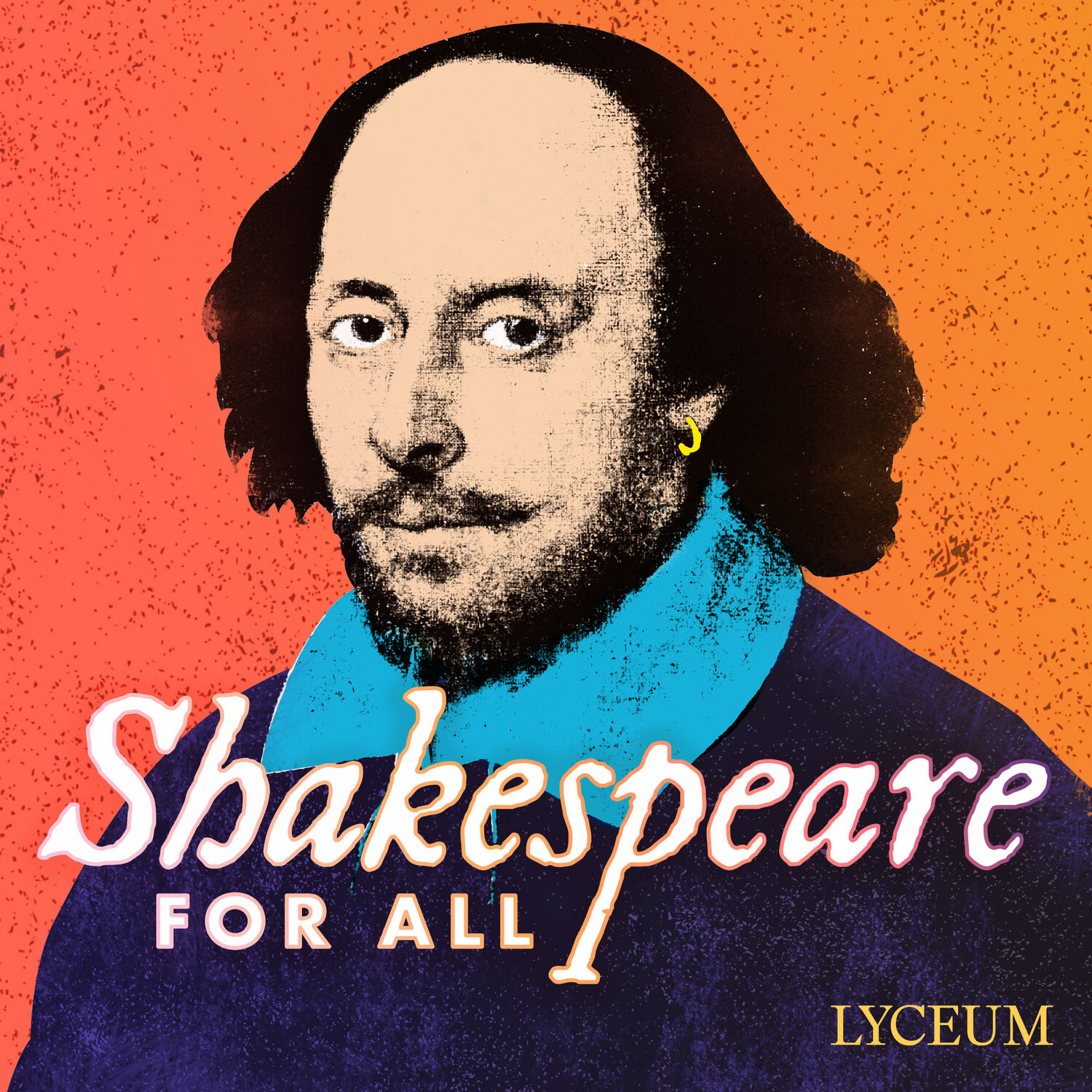Henry V
“REMEMBER WITH ADVANTAGES”
What You'll Learn
The story of Henry V and the key historical context behind the play
Why Henry V is one of Shakespeare’s most enigmatic heroes
How the play reveals the process by which history is made
Course Outline
Episode 1: Henry V - the Story and the Context
Episode 2: Henry V - History, Heroism, and Genre
Episode 3: Henry V - the Language
Works Consulted for this Course
Garber, Marjorie B. Shakespeare After All. New York: Pantheon Books, 2004.
Maus, Katharine Eisaman. “Introduction,” Henry V. in Shakespeare, William. The Norton Shakespeare. Edited by Stephen Greenblatt, Walter Cohen, Suzanne Gossett, Jean E. Howard, Katharine Eisaman Maus and Gordon McMullan. 3rd ed. New York: W. W. Norton & Company, 2016.
Neill, Michael. “Henry V: A Modern Perspective.” Folger Shakespeare Library. <https://shakespeare.folger.edu/shakespeares-works/henry-v/henry-v-a-modern-perspective/>
Rabkin, Norman. Shakespeare and the Problem of Meaning. Chicago: University of Chicago Press, 1981.
Smith, Emma. This Is Shakespeare. New York: Pantheon Books, 2020.
Shakespeare, William. Henry V. Edited by T.W. Craik. The Arden Shakespeare. London: Thomson Learning, 1995.
Shakespeare, William. Henry V. Edited by Jonathan Bate and Eric Rasmussen. The RSC Shakespeare. New York: Random House Publishing Group, 2010.
Henry V is one of the most celebrated of Shakespeare’s history plays. In the 1590s, Shakespeare wrote a series of eight plays based on English chronicle history, telling the stories of civil wars and wars abroad, of the rise and fall of kings. Henry V was an English monarch who won great military victories in France in the early 1400s, and Shakespeare dramatizes his famous victory at Agincourt. In this play, Shakespeare gives us the most heroic of his kings — while also showing us the process by which history and heroes are created. In this course, you’ll learn the story of Henry V, hear the play’s key speeches performed and analyzed by world-class Shakespearean actors and literary scholars, and learn what makes Henry V one of Shakespeare’s most enigmatic heroes.
In Part 1, you’ll be guided through a detailed account of the story with commentary by Stephen Foley, Associate Professor of English and Associate Professor of Comparative Literature at Brown University. You’ll learn the historical context behind the play and see how Shakespeare structured this war story both to scrutinize the English king and to offer a view of English society as a whole. This summary is told using the language of the play itself, placing key quotations in context to help you understand where these lines come from and what they mean.
Part 2 opens with a discussion of the history play genre and of how history shapes and constrains the plays’ protagonists. We then explore the complex character of Henry himself, asking why this figure has given rise to so many conflicting interpretations and how Henry’s unique political role should influence the way we judge him. Finally, we trace the arc of the play, from its moral crisis in battle to its sudden shift to romantic comedy, to ask what redemption can be found after the tragic suffering of war.
Part 3 features close-readings of some of the play’s most significant speeches. Through Henry’s private soliloquy, we trace his moments of insight and blindness. In the Chorus’s inspiring invitation to the audience to recreate the Battle of Agincourt in their minds, and in Henry’s stirring speech to his own troops before the battle, we see how Shakespeare’s words shape history, and how history is reshaped in the act of being remembered.
You can hear the third episode of this course for free below. For the full course, subscribe today on Himalaya Learning. Use the promo code SHAKESPEARE for 14 days free.
Speeches and Performers
Chorus, Prologue, “O, for a Muse of fire …” (Anton Lesser)
Henry V, Act 4, “What infinite heart’s ease …” (Ruth Page)
Henry V, Act 4, “If we are marked to die … Saint Crispin’s Day.” (Paterson Joseph)
Course Instructor
Stephen Foley
Associate Professor of English and Associate Professor of Comparative Literature at Brown University
Stephen Foley is Associate Professor of English and Associate Professor of Comparative Literature at Brown University. His research focuses on European Renaissance culture and letters, classical traditions, literary theory, and aesthetics. He is the author of numerous scholarly books, chapters, and articles, including Sir Thomas Wyatt (Twayne Publishers, 1990). He has served as chair of the Department of English at Brown, as the editor of Modern Language Studies, and as research editor for the Yale Edition of the Works of Thomas More.



